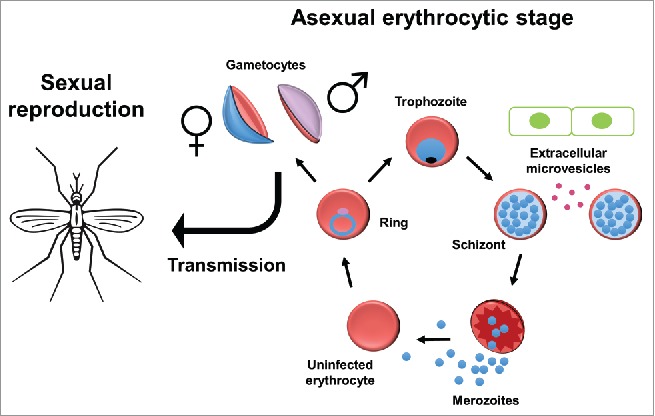Figure 1.

P. falciparum parasites replicate asexually in human erythrocytes in a 48-hour life cycle. Merozoites invade erythrocytes where they grow into rings and eventually larger trophozoites. During the schizont stage, cell-to-cell communication increases as extracellular microvesicles from infected cells relay messages to neighboring cells, including cells of the innate immune system and endothelial cells. The parasite also divides at this stage to form 16–32 new merozoites, most of which continue to reproduce asexually. A small proportion of merozoites is sexually committed and upon invasion of new erythrocytes will transition to a gametocyte fate. Mature male and female gametocytes can then be transmitted to the mosquito, where mating takes place.
